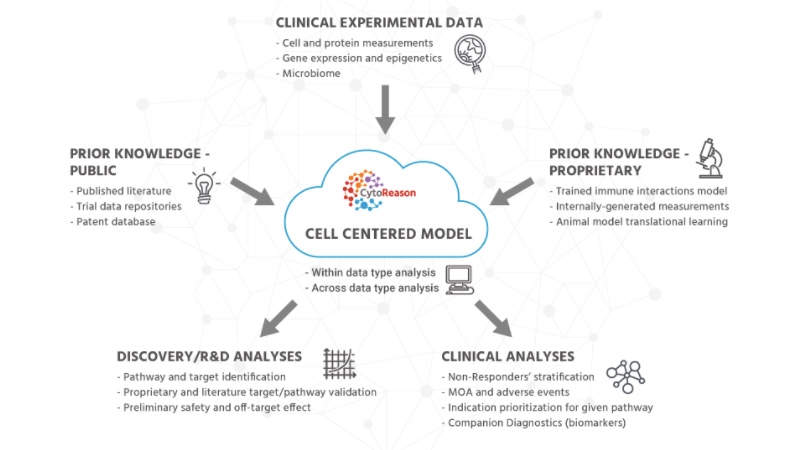Using an AI model of the immune system, CytoReason looked into genomic data of patients that responded versus those that did not respond to treatment from anti-inflammatory drugs such as Remicade.
Comparing those that responded to the drug versus those that did not, CytoReason discovered specific biomarkers in blood and tissue samples, which predicted who will and will not respond to anti-TNF drugs such as Remicade in the future.
Typically the process to determine whether a patient was responsive to anti-TNF drugs like Remicade took more than three months and was dependant on trial and error, exposing the patient to potential side effects and unnecessary costs.
In the first public demonstration of its technology, CytoReason used three different publicly available and independent clinical trials to study the RNA from lesion tissues to see what the difference was in those that responded to those that did not to the anti-TNF treatment.
Discovering what the differences were through the use of its AI technology, CytoReason is able to determine when drugs like Remicade, will be effective and when it will not. Providing immunologists a system level view of immune responses.

In a blind validation from various hospitals, CytoReason showed predictive insights into TNF drugs, effectively cutting costs, time and risks for pharma companies during their development cycle. According to the company, CytoReason can prevent safety issues, creates a personalised medical experience and reduce unnecessary prescriptions.
“Leveraging our platform and proprietary data, we offer our pharma partners an unparalleled resource, becoming their system immunology sounding board,” said David Harel, Cofounder and President of CytoReason.
“CytoReason’s proprietary machine-learning engine enhances its performance with each new dataset introduced. Our platform enables innovative big-data analysis, focusing on solving mysteries in immune related disorders and therapies, affecting the cost of target identification, reducing the risk of clinical trials, and bringing the world closer to an affordable personalized medicine,” said Harel.
